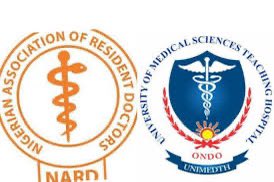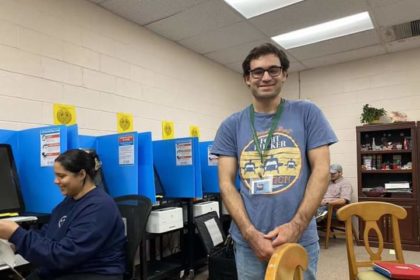By Solaide Oyelowo
Akure, ONDO State—Resident doctors at the University of Medical Sciences Teaching Hospital (UNIMEDTHC), Ondo Town, have suspended their strike less than 24 hours after the Ondo State Government stepped in to address their grievances. The swift resolution marks a significant step in averting a prolonged disruption to healthcare services in the state.
The doctors were on industrial action earlier this week, citing unpaid salaries and deplorable working conditions as their primary grievances. Despite multiple appeals from the hospital’s management for restraint, the doctors maintained that concrete solutions were necessary before they could resume their duties.
The strike had left many patients stranded, with emergency cases diverted to private facilities. The situation underscored the critical need for an immediate resolution to prevent a collapse of medical services in the region.
However, on Friday, the Chairperson of the Association of Resident Doctors at UNIMEDTHC, Olagbe Kehinde, announced the suspension of the strike. He credited the swift intervention of Governor Lucky Aiyedatiwa, whose administration acted promptly to meet the doctors’ demands.
“We are pleased to inform the public that the state government has taken decisive steps to address our concerns,” Mr. Kehinde said. “Critical demands, including the payment of outstanding salaries, have been fulfilled, and we have received assurances regarding other issues such as the Medical Residency Training Fund and infrastructure improvements in 2025.”
The announcement was met with relief by patients and healthcare stakeholders who had feared a prolonged standoff. Speaking on behalf of the resident doctors, Mr. Kehinde reaffirmed their commitment to working with the government to enhance healthcare delivery across the state. “Our primary goal is to ensure the well-being of our patients, and we remain dedicated to collaborating with the government to achieve sustainable improvements in the healthcare system,” he added.
Governor Aiyedatiwa’s intervention has been widely praised for its promptness and effectiveness. In a statement, the governor reiterated his administration’s commitment to prioritizing healthcare and addressing the welfare of medical professionals. “Healthcare is a cornerstone of our development agenda, and we will continue to invest in improving the working conditions of our medical personnel,” he said.
Sources close to the negotiations revealed that the governor personally oversaw discussions with the resident doctors, ensuring that their concerns were addressed comprehensively. The payment of outstanding salaries was expedited, and plans were outlined for a phased resolution of other demands.
The Medical Residency Training Fund, a key issue for the doctors, has been earmarked for inclusion in the 2025 budget. Additionally, the government has committed to upgrading medical infrastructure at the teaching hospital to create a more conducive working environment.
The resolution of the strike has sparked a broader conversation about the state of healthcare in Ondo and Nigeria at large. Many observers note that the issues raised by the resident doctors—poor remuneration, inadequate funding, and infrastructure deficits—are not unique to Ondo but reflect systemic challenges across the country.
Health policy expert Dr. Samuel Adebayo commented on the development: “This strike highlights the urgent need for sustained investment in the health sector. While the swift resolution in Ondo is commendable, it underscores the broader challenges faced by medical professionals nationwide.”
Patients and their families have expressed relief and gratitude for the resolution. Mrs. Florence Ayodele, whose husband had been awaiting surgery during the strike, said, “We were very worried, but we’re grateful that the government and the doctors came to an agreement. It shows that both sides care about the people.”
The Ondo State Government’s response has also drawn attention to its broader efforts to strengthen the healthcare system. Over the past year, the state has introduced several initiatives aimed at improving healthcare access and quality, including the recruitment of additional medical personnel and the expansion of primary healthcare services.
As the resident doctors return to work, many hope that this resolution will mark the beginning of a new era of collaboration between healthcare workers and the government. For now, the focus remains on restoring normalcy to the teaching hospital and ensuring that patients receive the care they need.




